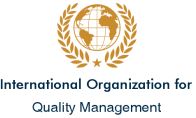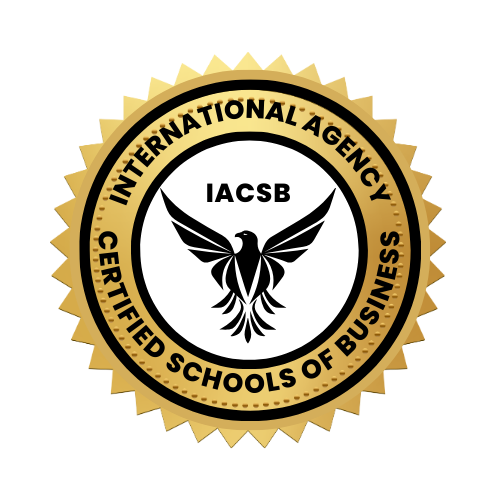The GAFM Global Academy of Finance and Management Journal is a premier publication
dedicated to advancing knowledge in the fields of finance, management, economics, and
business strategy. This journal provides insightful research, expert commentary, and
in-depth articles from global thought leaders, professionals, and academics. Covering a
broad spectrum of topics, the journal serves as a valuable resource for business
executives, educators, financial experts, and policymakers. With a focus on innovation,
industry trends, and professional development, the GAFM Journal is essential reading for
anyone seeking to stay at the forefront of financial and management excellence. Explore
cutting-edge insights and join the global conversation on financial management and
leadership.
New Article 2025
Exploring the Intersection of Leadership and Mental
Health:
Self-Care Practices in Academia
Henry Oh,
PhD, MBA, DF, NPT-C, RRT, MLS, FAARC, FRSB, FGAFM
Business
Administration, Education, Neuro-Psychotherapy,
Medical
Laboratory Science and Respiratory Therapy
Summary
The demands of leadership roles in
academia can be tremendous, leading to damaging effects to mental health.
Some of these acts are
emotionally taxing and can lead to stress, burnout, and feelings of isolation.
Self-care practices have emerged as one way of countering these effects. This
literature review aims to examine the link between academic leadership and mental
health and self-care practices with well-being toward prosperity. Terms involved in
the search strategy were: 'academic leadership stress', 'mental health in
leadership', 'self-care practices in academia' and 'leadership and well-being'. This
review further highlights some research gaps providing an opportunity for future
research in this important area, given a much smaller number of studies conducted on
self-care in academic leadership.
Introduction
The pressures faced by academic
leaders are well-illustrated. They often must balance between several roles that create
a fair amount of pressure (Urick, Carpenter, Eckert, 2021). The unique challenges of
academic leadership are long hours worked and under pressure from decision-making for
various stakeholder relations. This makes the job usually cause considerable amount of
mental distress, including stress, burnout, and anxiety (Gabriel,
2018).
Color women face unique challenges
within academic structures. They may experience composite stress due to their gender and
racial identities, which can affect their mental health (Nicol and Yee, 2017). Grottis
(2024) elaborates on this by examining how black women administrators sail their roles
while prioritizing their subjective well-being and resistance through radical self-care
practices.
This review seeks to integrate
existing knowledge in the field of leadership, mental health, and self-care practices
for a better understanding of their intersection and to put forth the most desirable
avenues for future research.
Methodology
The methodology included the
following steps for this process:
Search Strategy:
In order to identify relevant
peer-reviewed articles, books, and reports, relevant databases were employed: PubMed,
PsycINFO, ERIC, and Google Scholar. Search terms included: 'academic leadership stress,'
'mental health in leadership,' 'self-care practices in academia,' and 'leadership and
well-being.'
Inclusion Criteria:
Except for one reference from Orem
(1995), this study provides literature published in English from 2000 to 2024. Empirical
studies, theoretical frameworks, and reviews that relate to self-care practices and
mental health in academic leadership were the most favored.
Exclusion Criteria:
Articles were excluded if they were
related to corporate leadership or non-academic contexts or were unrelated to mental
health topics.
Data Completion and
Analysis:
key findings were extracted from
the reviewed literature and placed under different themes including stressors in
academic leadership, role of mental health in leadership, and common self-care
practices. Such methodology provided insight into the intersectionality of
leadership and mental health as applied in an academic context.
Stressors in Academic
Leadership
The academic leadership system
comprises several stress-producing factors: administrative overload, resource
constraints, conflicts between the faculty demands and institutional goals (Knight and
Trowle, 2001). The above pressures create a chronic state of stress, which in turn
affects one's ability to make decisions and the effectiveness of leadership (Sverdik and
Hall, 2020). Evidence shows that, in many cases, the mental well-being of the leader is
sacrificed for the further demands of the institution, hence aggravating the mental
health issues (Leiter & Maslach, 2016).
Mental Health in
Leadership
Great importance is allocated to
mental health in leadership since it evokes their effectiveness in decision-making,
relationship-building, and fostering teamwork (Bowen et al., 2019). It has been
suggested, and found to be on correlation with diminished production and morale, that
mental illness may lead to lower organizational productivity (Colligan & Higgins,
2006).The failure of a leader to prioritize themselves gives birth to those leaders who,
conversely, become resilient, high-performing, and demonstrate respect for team
conformity (Luthans et al., 2007).
Self-Care Practices
One finds it common to tie
self-care into effective leadership in the honorary realm of academia case studies and
reports. In their paper, Driscoll, Leigh, and Zamin (2020) have mentioned how self-care
enhances personal wellbeing while augmenting professional abilities; hence, leaders
exercise self-care to augment their emotional intelligence, which would pay off in the
culture of their institutions. This correlates with the findings of Lemon (2021), who
puts forth that vulnerability as a trait that should permeate into self-care can indeed
help leaders form crucial connections with their peers and students.
The COVID-19 pandemic further
derailed the significance of self-care in academic leadership. The crisis presented
unprecedented challenges that required rapid modifications, which often, but not only,
caused increased anxiety and mental anguish among leaders (Urick et al., 2021). As a
response to these tensions, many leaders found solace in self-care strategies that
allowed them to refresh and lead in a more effective manner. Riccitelli (2024) comments
on how crucial self-care acts as a tool of resistance in a neoliberal academic context,
emphasizing that self-care practices will counterbalance the adverse effects of those in
high-stress roles.
Self-care is the method of
maintaining the physical, emotional, and mental well-being of oneself (WHO, 2019).
Within the context of leadership positions, self-care refers to managing cortisol levels
(stress management), emotional regulation, and finding work-life balance. Among the
numerous theories developed, Orem's Self-Care Deficit Nursing Theory defines self-care
as an effort against burnout (Orem 1995). In academia, self-care practices are
positively correlated with job satisfaction and inversely proportional to burnout among
women in universities (Turner & Edwards, 2021).
Besides addressing the
instantaneous well-being of leaders, self-care has a powerful pull on institutional
landscapes. Randa (2023) proposes that institutional self-care actions could contribute
constructively towards making the working environment more supportive for every scholar
and academician. Accordingly, self-care practices should be publicized by leadership,
which would show that mental health takes precedence to the resilience of an
organization. Besides these, Lemon (2022) points out that creative expression done as a
way of self-care can aid in providing a space for academics to breathe, collaborating
and committing to a healthy community.
Self-Care
Strategies
Academic leaders are encouraged to
use varied self-care practices to improve their resilience. For example, physical
activities such as running can double as mental breaks (Tarabochia, Brugar and Ward,
2022). In addition, a culture of support tutoring can offer additional self-care layers
that promote well-being (Balderrama-Trudell, 2023). Johnson-Arnold’s work (2020)
indicates that students who graduated in educational leadership greatly benefit from
understanding of self-care as part of their holistic health.
Common techniques include
mindfulness practices, physical activity, and social support, all of which are utilized
by academic leaders to cope with stress (Shanafelt & Noseworthy, 2017).
Mindfulness-based intervention has been found to significantly enhance their emotional
regulation and reduce stress levels across the board among leaders (Good et al., 2016).
Besides, such institutional support in self-care practices, including flexible
scheduling and the availability of mental health resources, are critically significant
to make those possible (Geller et al., 2021).
There is an increasing awareness
that institutions must actively support self-care practices. Lemon (2024) underlines the
necessity of universities putting their weight on ensuring well-being and remaking their
cultures so that self-care is no longer a solo undertaking. By establishing environments
that promote mental well-being, institutions may therefore break the silence on mental
health issues facing academic leaders.
Despite the importance of
self-care, the challenges remain. Prisloe (2022) warns about toxic rhetoric that
surrounds discussions about self-care, which can create pressure instead of relief for
academic leaders. Leaders must find a balance in how they approach self-care to ensure
that they do not become another task in their daily life.
Gaps in
Literature
Mental health and self-care
participation of academic CEOs and leaders remain with few materials being procured.
Much of the existing research primarily addresses governance in general or corporate
contexts, which has consequently limited its application and relevance within the
academic field (Gabriel et al., 2018). Mixed-methods research combining quantitative and
qualitative data is also sorely missing to paint a bigger picture about self-care
participation and its effect on mental health and leadership successes.
Implications for Future
Research
Future studies should consider
practices with self-care employed in academic leaders and associated studies linking
their success to varied institutional settings. Mixed-method approaches could offer
richer insights into the ways in which self-care influences mental health and leadership
performance. In addition, longitudinal studies could measure lasting impacts on
well-being and organizational outcomes from self-care interventions.
Conclusion
Many individuals consider academic
leadership roles to be among the most stressful careers. Therefore, every academic
leader should develop their mental health and self-care practices to ensure optimal
personal and professional functioning. Affirmatively, the literature impacts future
targeted research aimed at self-care in the administrative arena as a basis for
developing evidence-based interventions directed towards academic leaders. By putting
self-care and mental health as top priorities, institutions can develop resilient
leaders to withstand the test of time in dealing with various challenges facing higher
education.
References
Balderrama-Trudell, I. (2023).
Self-care, wellbeing, and mentoring related to transitions:
Testimonios of women of color in
student affairs (Doctoral dissertation).
Bowen, A., Jones, M., & Smith,
R. (2019). The impact of mental health on leadership
effectiveness: Decision-making,
relationships, and teamwork. Journal of Leadership and Organizational Studies, 26(3),
289-302. https://doi.org/10.1177/1548051819833379
Colligan, T. W., & Higgins, E.
M. (2006). Workplace stress: Etiology and consequences.
Journal of Workplace Behavioral
Health, 21(2), 89-97.
https://doi.org/10.1300/J490v21n02_07
Driscoll, D. L., Leigh, S. R.,
& Zamin, N. F. (2020). Self-care as professionalization: A
case for ethical doctoral education
in composition studies. College Composition & Communication, 71(3),
453-480.
Gabriel, Y., Griffiths, D., &
Smith, C. (2018). Leadership and mental health: The cost of
caring. Journal of Leadership
Studies, 12(1), 7-22. https://doi.org/10.1002/jls.21545
Geller, G., Taylor, H. A., &
Scott, R. E. (2021). Institutional supports for leader well-
being: Addressing the hidden costs
of academic leadership. Leadership in Health Services, 34(3), 276-288.
https://doi.org/10.1108/LHS-01-2020-0008
Good, D. J., Lyddy, C. J., Glomb,
T. M., Bono, J. E., Brown, K. W., Duffy, M. K., &
Lazar, S. W. (2016). Contemplating
mindfulness at work: An integrative review. Journal of Management, 42(1), 114-142.
https://doi.org/10.1177/0149206315617003
Grottis, L. R. (2024). Balancing
Wellness and Leadership: Exploring Black Women
Administrators’ Subjective
Well-Being, Resilience, and Radical Self-Care in Higher Education (Doctoral
dissertation, Abilene Christian University).
Johnson-Arnold, L. (2020).
Self-Care Practices and Perceptions of Holistic Health
Among Selected Educational
Leadership Graduate Students Attending Historically Black Colleges and Universities or
Minority Serving Institutions (Doctoral dissertation, Fayetteville State
University).
Knight, P. T., & Trowler, P. R.
(2001). Departmental leadership in higher education:
New directions for communities of
practice. Open University Press.
Leiter, M. P., & Maslach, C.
(2016). Understanding burnout as a process: Theoretical
issues and practical concerns.
World Psychiatry, 15(2), 103-111. https://doi.org/10.1002/wps.20311
Lemon, N. (Ed.). (2024).
Prioritising Wellbeing and Self-care in Higher Education: How
We Can Do Things Differently to
Disrupt Silence. Taylor & Francis.
Lemon, N. (Ed.). (2022). Creative
expression and wellbeing in higher education: making
and movement as mindful moments of
self-care. Taylor & Francis.
Lemon, N. (2021). Vulnerability,
self-care, and the relationship with us and others in
higher education. In Healthy
Relationships in Higher Education (pp. 1-9). Routledge.
Luthans, F., Youssef, C. M., &
Avolio, B. J. (2007). Psychological capital: Developing
the human competitive edge. Oxford
University Press.
Nicol, D. J., & Yee, J. A.
(2017). “Reclaiming our time”: Women of color faculty and
radical self-care in the academy.
Feminist Teacher, 27(2-3), 133-156.
Orem, D. E. (1995). Nursing:
Concepts of practice (5th ed.). Mosby.
Prisloe, D. K. (2022). Toxic
rhetoric: Unpacking discussions of self-care. The Vermont
Connection, 43(1),
20.
Randa, M. B. (2023). Of wellbeing
and self-care in academia. In Women Practicing
Resilience, Self-care and Wellbeing
in Academia (pp. 186-198). Routledge.
Riccitelli, J. (2024). ‘Critical
Self-Care’: Reimagining Possibilities of Self-Care as
Everyday Resistance in the Context
of the Neoliberal University. Critical Sociology, 08969205241245091.
Shanafelt, T. D., & Noseworthy,
J. H. (2017). Executive leadership and physician well-
being: Nine organizational
strategies to promote engagement and reduce burnout. Mayo Clinic Proceedings, 92(1),
129-146. https://doi.org/10.1016/j.mayocp.2016.10.004
Sverdlik, A., & Hall, N. C.
(2020). Academic stress and mental health: Exploring the
mediating role of achievement
goals. Educational Psychology, 40(4), 208-224. https://doi.org/10.1080/01443410.2019.1706006
Tarabochia, S. L., Brugar, K. A.,
& Ward, J. A. (2022). Running, writing, resilience: A
self-study of collaborative
self-care among women faculty. In Creative Expression and Wellbeing in Higher Education
(pp. 87-104). Routledge.
Turner, R., & Edwards, R.
(2021). Preventing burnout in academia: Strategies for
sustainable work-life balance.
Journal of Academic Leadership, 19(3), 12-25. https://doi.org/10.1177/0013161X20940560
Urick, A., Carpenter, B. W., &
Eckert, J. (2021, March). Confronting COVID: Crisis
leadership, turbulence, and
self-care. In Frontiers in Education (Vol. 6, p. 642861). Frontiers Media
SA.
World Health Organization (WHO).
(2019). Self-care interventions for health. Retrieved
from https://www.who.int













